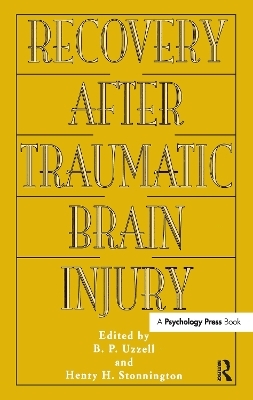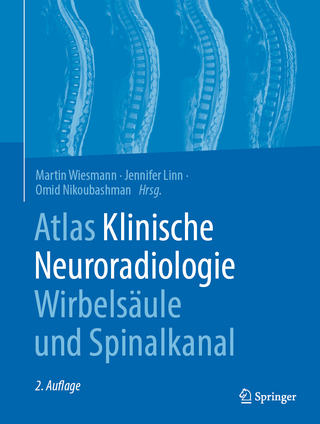
Recovery After Traumatic Brain Injury
Psychology Press (Verlag)
978-0-8058-1823-9 (ISBN)
Emotions, behaviors, thoughts, creations, planning, daily physical activities, and routines are programmed within our brains. To acquire these capacities, the brain takes time to fully develop--a process that may take the first 20 years of life. Disruptions of the brain involving neurons, axons, dendrites, synapses, neurotransmitters or brain infrastructure produce profound changes in development and functions of the one organ that makes us unique. To understand the functions and development of the brain is difficult enough, but to reverse the consequences of trauma and repair the damage is even more challenging. To meet this challenge and increase understanding, a host of disciplines working and communicating together are required.
The International Association for the Study of Traumatic Brain Injury tried to correct this limitation during its meetings of international clinicians, researchers, and scientists from many fields. It was felt that many of the outstanding thoughts and ideas from the participants' most recent meeting and from others working in the field of traumatic brain injury (TBI) should be shared. This book was conceived not as proceedings of the conference, but as a collection of knowledge for those working in the acute and chronic recovery aspects of head injury.
This book reflects the importance of the team approach to patients with TBI. The chapter authors come from a diverse array of disciplines--basic science, neurosurgery, neurology, radiology, psychology, neuropsychology, and legal, consumer, and speech/language science. Their contributions provide the most current research and the latest ways of managing a variety of aspects of TBI.
Barbara P. Uzzell, Henry H. Stonnington
Contents: B.P. Uzzell, H.H. Stonnington, Introduction. Part I:Diagnoses and Management.J.D. Lewine, W.W. Orrison, Jr., J.T. Davis, B. Hart, J. Spar, P.W. Kodituwakku, D. Hill, S. Chang, V.A. Woldorf, P. Shaw, C. Edgar, J.H. Sloan, Neuromagnetic Evaluation of Brain Dysfunction in Postconcussive Syndromes Associated With Mild Head Trauma. J.T.L. Wilson, D.M. Hadley, L.C. Scott, A. Harper, Neuropsychological Significance of Contusional Lesions Identified by MRI. J.L. Dowling, R.G. Dacey, Jr., Factors Affecting Brain Injury in Subarachnoid Hemorrhage. Y. Katayama, A. Yoshino, T. Kawamata, T. Tsubokawa, Role of Excitatory Amino Acids in Neuronal and Glial Responses to Traumatic Brain Injury. W.D. Dietrich, Light and Electron Microscopic Studies of Fluid-Percussion Brain Injury in Rats: Posttraumatic Temperature Considerations. T. Tsubokawa, Chronic Brain Stimulation as a Restorative Treatment for Brain Damage. W.E. Lux, Pharmacological Strategies in the Management of Cognition and Behavior Following Traumatic Brain Injury. Part II:Clinical States.B. Johnstone, T.S. Callahan, Neurological Evaluation of Traumatic Brain Injury in the United States: A Critical Analysis. J.D. Corrigan, Assessment of Agitation During the Acute Phase of Recovery. J.D. Corrigan, The Incidence and Impact of Substance Abuse Following Traumatic Brain Injury. Z. Kalisky, B.P. Uzzell, Florid Confabulation Following Brain Injury. B.E. Murdoch, Physiological Rehabilitation of Disordered Speech Following Closed Head Injury. N.D. Zasler, Vegetative State: Challenges, Controversies, and Caveats. A Physiatric Perspective. Part III:Timing and Outcomes.B. Kolb, Brain Plasticity and Behavior During Development. J.L. Ponsford, J.H. Olver, C. Curran, Outcome Following Traumatic Brain Injury: An Australian Study. A-L. Christensen, C. Caetano, G. Rasmussen, Psychosocial Outcome After an Intensive, Neuropsychologically Oriented Day Program: Contributing Program Variables. M.J. Fuhrer, J.S. Richards, Medical Rehabilitation Outcomes for Persons With Traumatic Brain Injury: Some Recommended Directions for Research. P. Wehman, Traumatic Brain Injury: Work Outcome and Supported Employment. Part IV:Family and Community.J.E. Farmer, R. Stucky-Ropp, Family Transactions and Traumatic Brain Injury. F.J. Krause, The Development of Grassroots Support for Research and Services in Brain Injury. D.N. Cope, A Databased Managed Care System of Catastrophic Neurological Injury Rehabilitation. J.S. Taylor, Neurolaw: Medicolegal Aspects of Traumatic Brain Injury. B.P. Uzzell, H.H. Stonnington, Final Thoughts: Speculations for the Future.
| Erscheint lt. Verlag | 12.11.1996 |
|---|---|
| Reihe/Serie | Institute for Research in Behavioral Neuroscience Series |
| Verlagsort | Philadelphia |
| Sprache | englisch |
| Maße | 152 x 229 mm |
| Gewicht | 635 g |
| Themenwelt | Geisteswissenschaften ► Psychologie ► Allgemeine Psychologie |
| Geisteswissenschaften ► Psychologie ► Biopsychologie / Neurowissenschaften | |
| Geisteswissenschaften ► Psychologie ► Verhaltenstherapie | |
| Medizinische Fachgebiete ► Chirurgie ► Neurochirurgie | |
| Medizin / Pharmazie ► Medizinische Fachgebiete ► Notfallmedizin | |
| Medizin / Pharmazie ► Physiotherapie / Ergotherapie ► Rehabilitation | |
| ISBN-10 | 0-8058-1823-5 / 0805818235 |
| ISBN-13 | 978-0-8058-1823-9 / 9780805818239 |
| Zustand | Neuware |
| Informationen gemäß Produktsicherheitsverordnung (GPSR) | |
| Haben Sie eine Frage zum Produkt? |
aus dem Bereich


